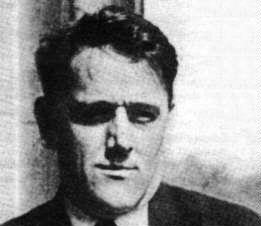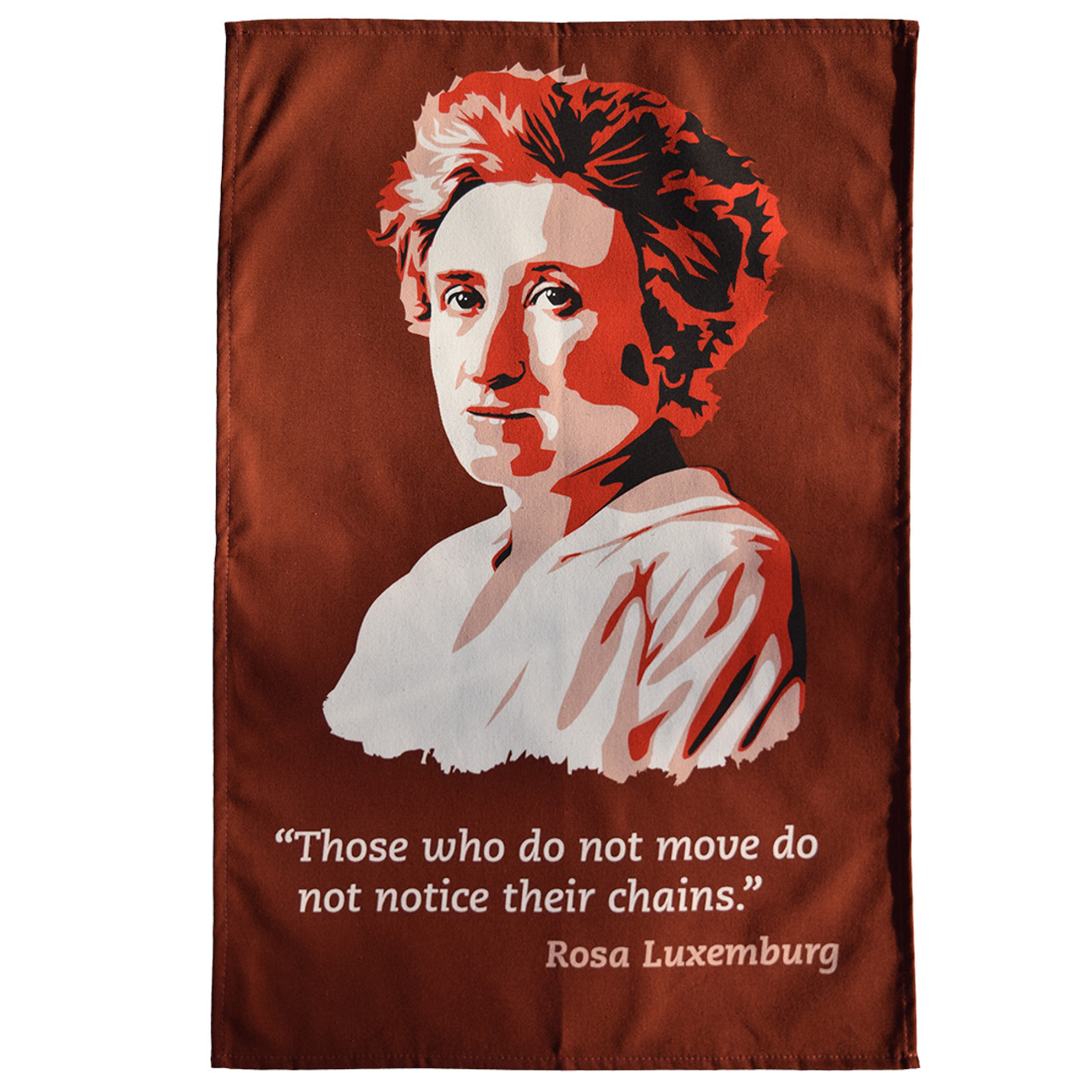The PR Man Feared by Hitler and Stalin: Willi Münzenberg
Posted by Pete on 14th Aug 2024
Propagandist Willi Münzenberg stood up to authoritarians across the continent in his quest to support the European Left
Willi Münzenberg was born on this day in 1889, in Erfurt, Saxony.
The working-class son of a Saxon barkeep, Münzenberg became one of the most influential and innovative left-wing propagandists of the twentieth century.

Willi Münzenberg (undated)
Münzenberg first became involved in the German labour movement when he was working in a shoe factory.
He joined the Marxist-inspired Social Democratic Party (SPD), and began organising apprentice workers in Erfurt.
Under the authoritarian, anti-socialist regime of the Kaiser, Münzenberg’s labour activism landed him in jail, then exile.
Münzenberg backed Rosa Luxemburg and the radical wing of Germany's SPD
See the Rosa Luxemburg tea towel
In 1910, Münzenberg found his way to Switzerland – a hub of left-wing exiles from across Europe. He stayed in Zurich for the next eight years.
From exile, Münzenberg supported the radical wing of the SPD in Germany, led by towering figures like Rosa Luxemburg, when it opposed the First World War.
Münzenberg also linked up with members of the socialist antiwar movement in Switzerland, including the Russian exile, Vladimir Lenin.
In 1917, Münzenberg supported the Russian Revolution and its international organisation, the Comintern, seeing them as a victory for the socialist principles of anti-militarism and working-class internationalism, which the mainstream socialist leaders of Europe had abandoned by endorsing the war.
In November 1918, Münzenberg returned to Germany, where he joined the communist Spartacus League.
Münzenberg took part in the ill-fated Spartacist Uprising of 1919, during which Rosa Luxemburg was murdered by proto-Nazi paramilitaries.
Münzenberg was captured and imprisoned for five months. But after jail, he became a crucial organiser in the international communist movement during the 1920s and 1930s.
Münzenberg was willing to work with colleagues across the political Left in opposing fascism
See the Family Tree of Socialism tea towel
Münzenberg’s speciality, it turned out, was doing radical politics in the spheres of media, culture, and PR, and doing it on an international scale.
Münzenberg directed left-wing organisations as they bought up various media and cultural institutions in Europe.
He moved into cinema during the 1920s, collaborating with the communist writer, Bertolt Brecht, and helping with the international distribution of Soviet films including Battleship Potemkin.
Münzenberg also launched new socialist newspapers and magazines, quickly reaching a circulation in the hundreds of thousands.
The Münzenberg network was put to good work for the international causes of the Left during the interwar years.
In 1925, Münzenberg organised the solidarity campaign with the anarchists, Sacco and Vanzetti, imprisoned in the U.S.
And in 1927, Münzenberg set up the communist-aligned League Against Imperialism in Brussels, which brought together anticolonial activists from all over the world, including a young Jawaharlal Nehru from India, in order to coordinate and learn from one another.
During the pivotal years of the early 1930s, when the Nazis seized power in Germany, Münzenberg was on the frontline of the anti-Nazi response, too.
Despite having to move all of his political activities out of his native Germany, where the Left was being violently criminalised by the new Hitler regime, Münzenberg carried on the struggle abroad.
In particular, Münzenberg organised the international condemnation of the Reichstag Fire Trial in 1933.
The Nazis were using the trial to justify a brutal crackdown on communists in Germany, and, in doing so, to consolidate the new fascist regime there.
But Münzenberg took the opportunity to unmask Nazism before the world.
Münzenberg recognised the terror involved in the Nazi project and spoke out, putting himself at great risk like others who did so including the later White Rose students
He published an expose, The Brown Book of the Reichstag Fire and Hitler Terror, selling 600,000 copies globally in just two years.
Münzenberg’s Brown Book not only argued that the Nazis had started the Reichstag Fire themselves, but also took aim at the entire Nazi system as it was developing in Germany: its anti-Semitism, its repression of the labour movement, and its use of torture against political prisoners.
It was in significant part thanks to Münzenberg’s international publicity campaign that the Nazi judicial system was forced to acquit some of the defendants.
Münzenberg’s focus on building politically diverse alliances against fascism meant that he was happy to work with non-communist members of the wider Left.
But this also meant that Münzenberg was increasingly out of step with the Comintern as it became dominated by evermore sectarian Stalinists during the 1930s.
In 1936, Münzenberg, while remaining a committed Marxist and communist, was expelled from the Stalinised Comintern.
Münzenberg had become too critical of the ham-fisted ways in which the Comintern was organising the fight against fascism in Europe.
Excommunicated by Moscow, Münzenberg nevertheless continued his anti-fascist activities in France, including by sending aid to the Spanish Republicans resisting Franco.
Even during the fall of France in 1940, Münzenberg was broadcasting anti-fascist radio shows from Paris until he physically had to flee the city to avoid capture, and likely torture and execution by the Nazis.
As it happened, Münzenberg was killed or died that year anyway.
Briefly interned by the French authorities in the southeast, Münzenberg escaped with a number of other political internees. His body was found in a forest a few months later.
It is possible that either the Gestapo or one of Stalin’s agents assassinated Münzenberg.
What’s not in doubt is the fact that he was among the most dynamic, creative, and committed anti-fascists in mid-century Europe.



